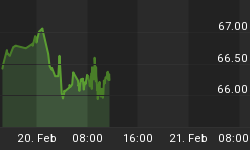Why read: To compare the views I expressed almost four years ago, to test those views against subsequent events, and to determine if you agree with my current views.
Commentary Then: On October 8, 2008, four years ago, and but two weeks after the collapse of Lehman Brothers, I expressed concern with new guidelines the U.S. Securities and Exchange Commission than provided on the 'mark-to-market' accounting rules that prevailed to that point. At that time I said (condensed):
-
the 'Mark-to-Market' accounting rules were put in place to:
-
subject company management to financial reporting rules and hence reduce their 'reporting latitude'; and,
-
let investors and others to better measure management performance and know sooner than later whether a company's capital had been eroded by prevailing open market conditions;
-
-
this new SEC guidance, which apparently is going to be addressed today by the Financial Accounting Standards Board, undoubtedly will have a positive effect on the balance sheets and income statements of the banks and other lending institutions from what they would be under 'mark-to-market' rules. In such circumstances do you think those company managements will err on the side of conservatism or optimism? It isn't the former;
-
improving balance sheets and income statements through changes to accounting treatments may result in those who don't understand valuation fundamentals believing for a time that a business that does not mark it assets to market is in better financial shape than it is - but in the end, all things equal, that belief will catch up with them;
-
accounting rules and their application can change balance sheet and income statement 'cosmetics', but they do not change a company's after-tax free cash flow valuation fundamental;
-
at least one article reported yesterday the U.S. stock markets added gains 'on the news'. If that reasoning for market gains is true those markets are truly in trouble because in the end it is stable cash positions and prospective 'after-tax free cash flows' that are the best adjudicators of business risk and hence the fundamental contributors to intelligent views on business value at any given point in time; and,
-
the timing of this 'guidance' announcement is interesting, being September 30 - the latest quarter end for many companies. This will enable immediate 'lifts' to company balance sheet equity for accounting purposes, and increased earnings (or reduced losses) per share for accounting purposes from what they otherwise would have been.
Commentary now: To date, there has been no real or readily observable fallout from the change in market-to-market rules made in the fall of 2008 and weakened further in the spring of 2011. I have intuitively believed since those accounting rules were changed that many Bank and Investment Bank balance sheets very likely have reflected and currently reflect overstated book shareholders' equity positions - often referred to as net book value, being the difference between total book assets and total book liabilities as reflected in the financial statements prepared in accord with 'generally accepted accounting principles'.
What currently is going on in Spain may be but an early representation of what may go on with many of the large world Banks and Investment Banks in the next months and years.
Read the full text of my October 1, 2008 commentary at New SEC Guidance - Sleight of Hand Never Works In The Long Term.
Reading time 4 minutes
















